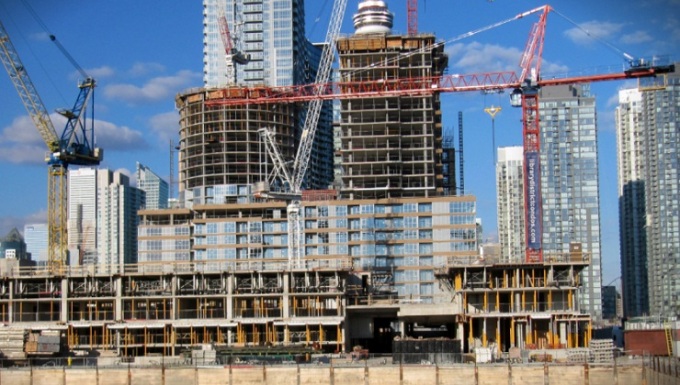The Vietnamese construction industry, which has recorded good growth during the period 2012–2016, is expected to continue its growth run in the next five years. This possibility is indicated in the overview of the Vietnamese construction industry by Ken Research in its report – “Construction in Vietnam, Key trends and opportunities to 2021”.
The report presents detailed market analysis, information and insights into the Vietnamese construction industry. It contains valuable data about this industry's growth prospects by market, project type and construction activity. The report also presents a critical insight into the impact of the industry trends and issues, and the risks and opportunities for those interested in doing business in this industry.

Going by the 9.1% growth recorded by it in 2016, the Vietnamese construction industry presents bright growth prospects. This growth figure is in real terms, measured at constant 2010 US dollar exchange rates. The four years preceding 2016 also recorded continuously improving annual growth rates – 6.4% (2012), 5.9 (2013), 7.6% (2014) and 10.8% (2015). The numbers look to improve further with the government facilitating the growth process.
Government role in growth
The main push to growth of the Vietnamese construction industry came from the country’s economic recovery, coupled with government’s investment in infrastructure and residential construction, and the increased issuance of building permits. In addition, the government invested in the development of industrial facilities under the Socio-Economic Development Plan (SEDP) for 2011-2015.
The government is looking forward to invest more in future to enhance the growth prospects. It will invest in public infrastructure and educational healthcare buildings under the 2016-2020 development Plan. Due to investments in transport infrastructure, energy and utilities and affordable housing projects, the country's construction industry is expected to expand in real terms over the forecast period (2017-2021).
The government’s new master plan for seaport system development up to 2020 and the 2020 Broadband Plan, launched in January 2016, would give impetus to economic development and growth. By these plans, the government expects to create investment opportunities and ensure social and economic inclusion.
The industry's output value is anticipated to post a forecast-period (2017-2021) CAGR of 7.78%, compared to the 8.33% CAGR recorded during the review period (2012-2016).
Improving the standard of living
The government’s initiative to invest in the construction sector would lead to many positive outcomes, like improvement in the standard of living, especially for those living in rural areas. With focus on urbanization, the government is not neglecting the growth and development of rural areas.
The launch of new rural building programme for 2016-2020, which aims to build schools, hospitals, roads, water-treatment facilities and other related infrastructure in rural areas, shows the farsightedness of the government to check the overpopulation of urban areas.
A better transportation is also a priority of the Vietnamese government. Under the Vietnam's Railway Development Strategy 2020, the government aims to increase the share of passenger and freight transport through railways from 0.5% of the passenger transport market and 1.0% of the total freight transport in 2015 to 13.0% and 14.0%, respectively, by 2020.
The Ministry of Transport (MOT) proposed a plan to develop the North/South railway infrastructure, including the construction of a dual-track broad gauge line connecting Hanoi and Ho Chi Minh City, two express railway sections, and upgrades to the existing railway.
The government is strategizing to build 1.0 million affordable houses by 2020 to increase Vietnam's housing area per capita from 16.7m2 per person in 2015 to 25.0m2 per person by 2020. To achieve this goal, it has launched various social housing programmes such as the Housing for Poor Rural Families Programme, low-rent housing for industrial zone employees, and low-income urban social housing-local government.
Major Players in Vietnamese Construction Industry
Leading players in the Vietnamese Construction Industry are: Petrovietnam Construction Joint Stock Corporation, Vietnam Construction and Import-Export Joint Stock Corporation, Cotec Construction Joint Stock Company, Hongha Vietnam Joint Stock Company, HoaBinh Construction and Real Estate Corporation
Conclusion
The current policies of the Vietnamese government are transforming Vietnam economy into a manufacturing economy. In fact, the government aims to develop a fully industrialized sector by 2020. There would be likely emergence of new start-ups and upgrades in industries through various government supported programmes and initiatives such as the Mekong Business Initiative (MBI), the Finland-Vietnam Innovation Partnership Programme (IPP) and the National Technology Innovation Fund (NATIF).
Key Topics Covered in the Report:
Vietnam Construction Industry Research Report
Vietnam Construction Industry Trends
Vietnam Construction Market Forecast
Global Construction Industry Research
Vietnam Commercial Construction Industry
Vietnam Residential Construction Market
New Construction Projects Vietnam
Vietnam Construction Equipment Market
Vietnam Construction Industry Competition
For more coverage click on the link below:
Related link:
Contact:
Ken Research
Ankur Gupta, Head Marketing & Communications
+91-124-4230204

No comments:
Post a Comment